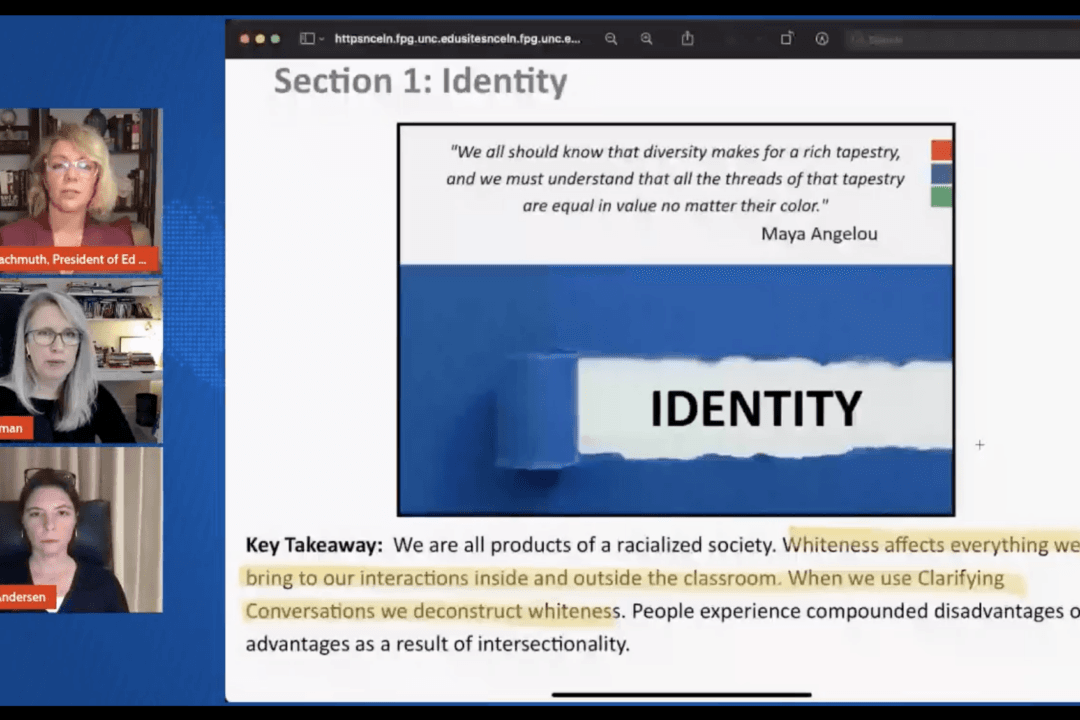After content promoting critical race theory (CRT) found within a professional development program for pre-kindergarten teachers of disabled children was reported by two education watchdog groups in North Carolina, the state board of education-approved contract for the program has come to a halt.
Overarching themes of “decentering whiteness” and “centering children of color” that surfaced were alleged to be a part of the North Carolina Department of Public Instruction (NCDPI) collaboration with the University of North Carolina (UNC) Chapel Hill’s Frank Porter Graham Child Development Institute (FPG), and the Office of Early Learning (OEL) through a program called the NC Early Learning Network (ELN).





